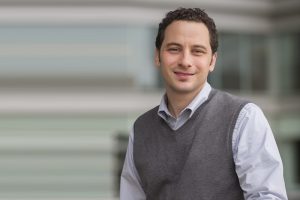
The National Cancer Institute has awarded a three-year, $1.4 million grant to University of North Carolina Lineberger Comprehensive Cancer Center researcher Seth M. Noar, PhD, to conduct studies that will help improve the effectiveness of tobacco prevention advertisements for adolescents.
Specifically, Noar and his collaborators will develop new metrics to gauge the effectiveness of tobacco prevention advertisements targeted to adolescents.
“When we develop tobacco prevention advertisements for young people, how do we know if they will be effective?” said Noar, who is a professor in the UNC Hussman School of Journalism and Media. “The focus of this project is on developing better metrics to tell us if a given advertisement will be effective before we put resources behind it.”
Already, the U.S. Food and Drug Administration has invested millions in youth tobacco prevention campaigns, such as “The Real Cost” national campaign, Noar said. While evaluations have shown that exposure to the campaign is linked to greater beliefs in cigarette health risks and lower smoking initiation, there is a need to better understand how to develop and select the most effective ads for youth.
Existing metrics to gauge the impact of ads were developed with adult smokers in mind, the researchers report. They were also developed before the advent of e-cigarettes and vaping. This grant will investigate and test novel ways to measure the likelihood that ads will prevent smoking and vaping in adolescents.
“The project will be successful if it develops better metrics that can help the FDA and others select more effective ads for their tobacco prevention campaigns,” Noar said. “Tens of millions of dollars are put into tobacco prevention campaigns targeting youth every year, and even small improvements to those campaigns could translate into big impact.”
In addition to Noar, UNC Lineberger’s Noel T. Brewer, PhD, professor in the UNC Gillings School of Global Public Health, and Marissa Hall, PhD, assistant professor in the UNC Gillings School of Global Public Health, are co-investigators on the study.
